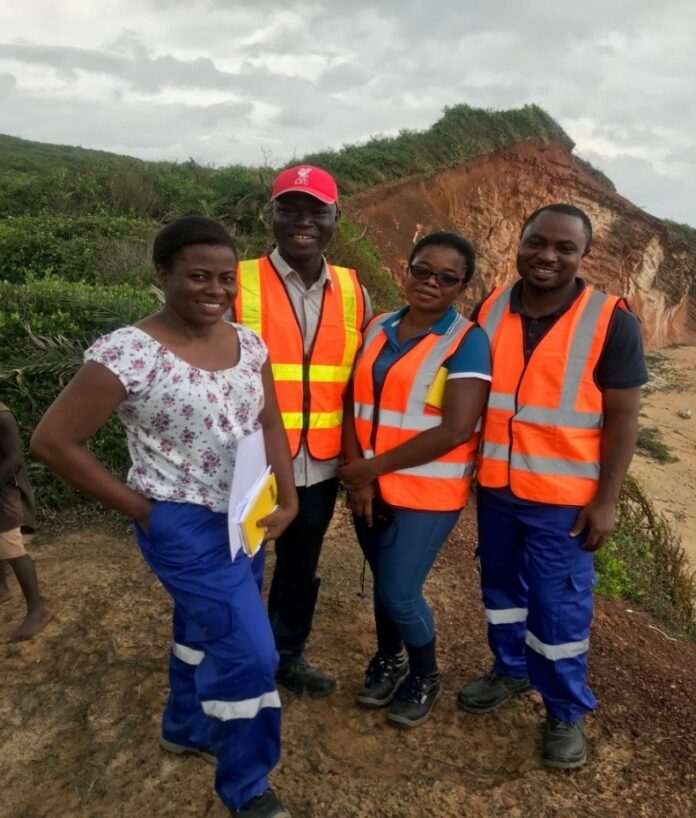
As part of the nation’s nuclear energy journey, the government, through the Nuclear Power Ghana (NPG), has procured three Seismic Monitoring Equipment to install at the nation’s four probable site for the establishment of the first nuclear plant, which would be the biggest energy investment since the building of the Akosombo dam in 1965.
Two of the sites are expected to share one equipment due to their proximity. The move is to offer the nation credible data to take a decision on its nuclear future. The equipment would gather current geological data – relating to earthquakes or other vibrations of the earth and its crust – which is integral in the building of a nuclear plant.
After rigorous work by the Nuclear Plant Siting Team, headed by atomic and nuclear energy research scientist Alberta Blay, put together by the state, comprising of only Ghanaian expertise, a comprehensive document on the four best sites to build a nuclear plant has been developed.
Ms. Blay told the B&FT that the major criteria considered in the selection process include natural events consisting of earthquake, flooding, lighting and thunder storm among others; human induced events and security.
“You would not like to establish a plant around chemical companies because of the likelihood of explosion, airports, areas of conflict etc. You also look at the impact on the population and the environment. You do not want to put the plant in a densely populated zone because in case of an incident, evacuation could be a challenge,” Ms. Blay said.
She added that an Emergency Planning System, such as the architecture of the environment, for the plant was also factored into the selection. Another critical factor she noted was technical engineering and cost.
“You need water for cooling the plant and this fall in the engineering aspect because the person coming to build the plant must know the quantity of water which can be available over what period of time and build a plant with those considerations. The route network was key; the quality of the road is important because a lot of material would be transported to the site,” she added.
The last consideration, she noted, was a detailed Socio-Economic Effect of the plant on the development of the community. After setting these strict criteria, the country was divided into the northern and southern sectors.
She explained that even though the northern sector looked favorable in the early stages as it is less prone to earthquakes, it was taken off due to the impact any accident might have on the downstream flow of the major water sources (Volta River) which would affect a great number of the country’s population.
Ms. Blay indicated that these studies led to 12 potential sites initially designated at the south western enclave of the country, whittled down to three while two potential sites designated at the south eastern, was also reduced to one. One of these four coastal communities in the south western or the south eastern part of the country would be hosting the nation’s first nuclear plant.
“When we got to this stage, focusing on only the south west and south east, we needed detailed information to take decisions. We were looking at more detailed data on population not only of today but projections into the future, the possibility of the springing up of major town and communities, mountainous areas, the establishment of military base or an airport in the area among other,” she added.
Executive Director of Nuclear Power Ghana Dr. Stephen Yamoah also explained that: “We are not going to use the four at the same time but one and this needs more technical and economic studies, which is currently ongoing.”
He noted that the work done so far has been a success as many state and private intuitions have collaborated and furnished the Nuclear Plant Siting Team with the relevant data to analyse before making any decision. The institutions include, Ghana Geological Survey Authority, Ghana Institution of Engineering, Ghana Institution of Surveyors, Ghana Meteorological Agency, Environmental Protection Agency, Ghana Statistical Service, Ghana Maritime Authority, Ghana Museums and Monuments Board, Forestry Commission, among others.
The work done has been factored into the Nuclear Power Programme Comprehensive Report which cabinet is yet to make a decision on. The decision would see the government commit and invest into the programme and call on a vendor to build the nuclear power plant for the nation.









